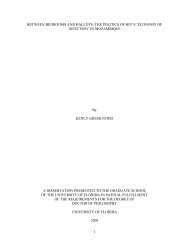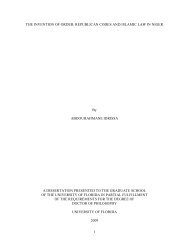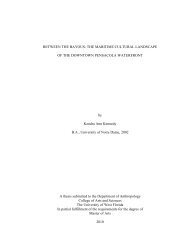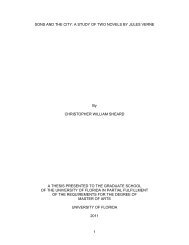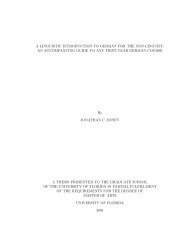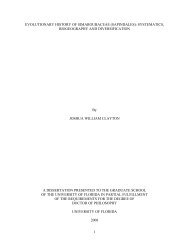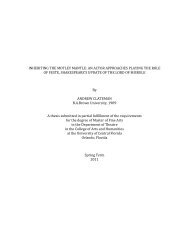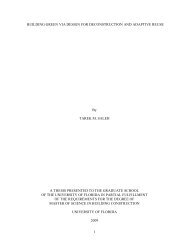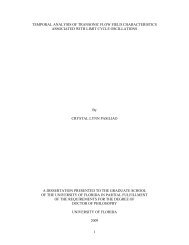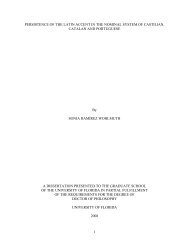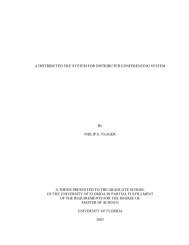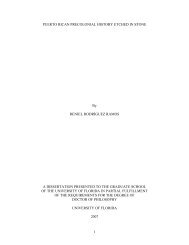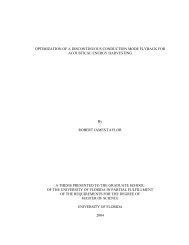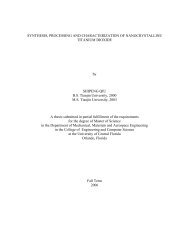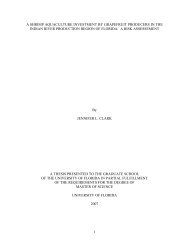B12 METABOLISM IN HUMANS By NICOLE AURORA LEAL A ...
B12 METABOLISM IN HUMANS By NICOLE AURORA LEAL A ...
B12 METABOLISM IN HUMANS By NICOLE AURORA LEAL A ...
You also want an ePaper? Increase the reach of your titles
YUMPU automatically turns print PDFs into web optimized ePapers that Google loves.
CHAPTER 5<br />
CONCLUSIONS<br />
In humans, cobalamin cofactors are required coenzymes for two enzymatic<br />
reactions that are vital to human health. These coenzymes are used in propionate<br />
metabolism and methionine biosynthesis, and in humans, deficiencies in cobalamin<br />
metabolism result in methylmalonic aciduria and homocystinuria. Nine complementation<br />
groups associated with such deficiencies have been identified. Historically, progress on<br />
understanding these diseases has been slow due to difficulties in purifying the enzymes<br />
involved as well as the lack of facile genetic methods. A bacterial model system was<br />
used to circumvent some of these problems and allowed progress on the identification<br />
and characterization of the genes and enzymes involved in these rare, but devastating<br />
disorders.<br />
Identification of the Bovine and Human Adenosyltransferase<br />
In Chapter 2, S. enterica was used as a model system for the identification of the<br />
bovine and human ATR cDNAs by complementation analysis. In this screening<br />
technique, the bovine cDNA was isolated by complementing an ATR deficient<br />
S. enterica strain. Subsequently, sequence similarity searches using the bovine ATR<br />
cDNA identified a homologous human gene. Both human and bovine expression<br />
libraries were screened; however, complementing clones were only found from the<br />
bovine library. This could have been due to the relative abundance of ATR mRNA in<br />
these systems. Ruminant livers have the highest reported concentration of <strong>B12</strong>-dependent<br />
119



